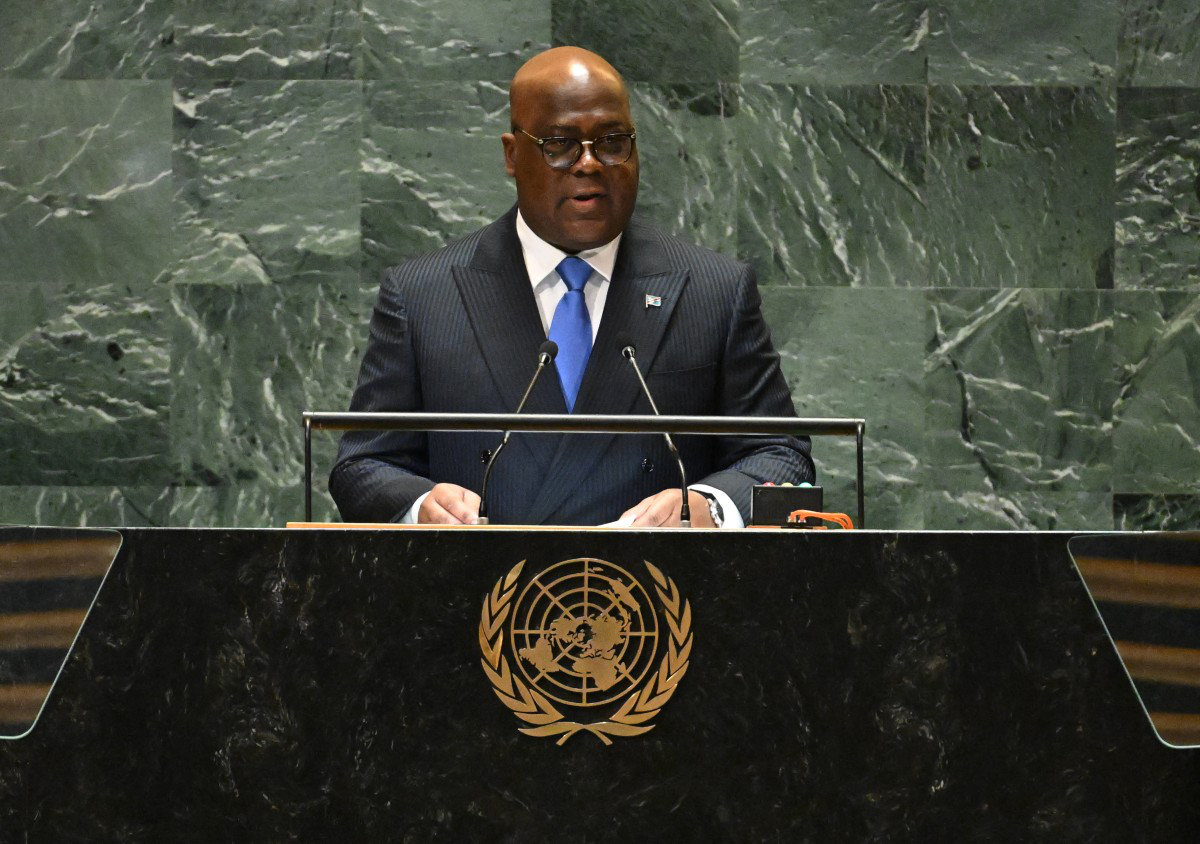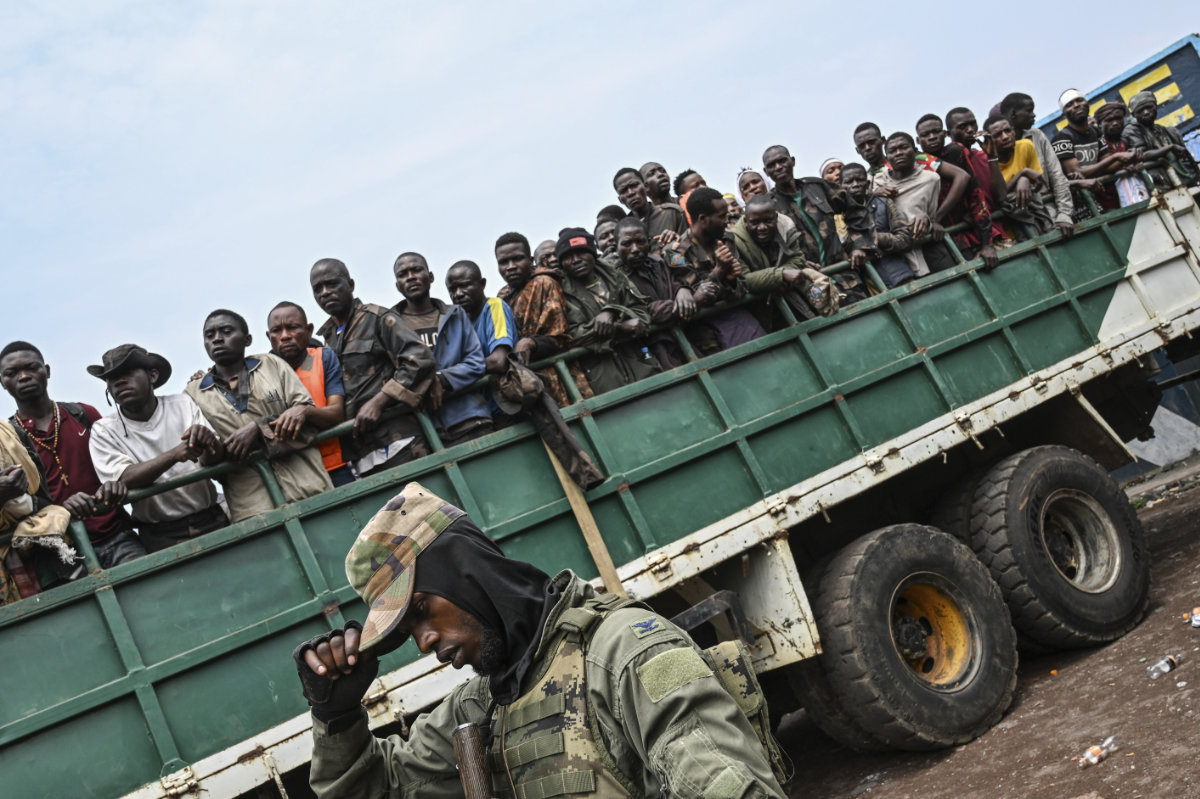LONDON: A teenager who stabbed three young girls to death at a Taylor Swift-themed dance class in England was sentenced Thursday to more than 50 years in prison for what a judge called “the most extreme, shocking and exceptionally serious crime.”
Judge Julian Goose said 18-year-old Axel Rudakubana “wanted to try and carry out mass murder of innocent, happy young girls.”
Goose said that he couldn’t impose a sentence of life without parole, because Rudakubana was under 18 when he committed the crime.
But the judge said he must serve 52 years, minus the six months he’s been in custody, before being considered for parole, and “it is likely he will never be released.”
Rudakubana was 17 when he attacked the children in the seaside town of Southport in July, killing Alice Da Silva Aguiar, 9, Elsie Dot Stancombe, 7, and Bebe King, 6. He wounded eight other girls, ranging in age from 7 to 13, along with teacher Leanne Lucas and John Hayes, a local businessman who intervened.
The attack shocked the country and set off both street violence and soul-searching. The government has announced a public inquiry into how the system failed to stop the killer, who had been referred to the authorities multiple times over his obsession with violence.
Defendant disrupts the hearing
Rudakubana faced three counts of murder, 10 of attempted murder and additional charges of possessing a knife, the poison ricin and an Al-Qaeda manual. He unexpectedly changed his plea to guilty on all charges on Monday.
But he wasn’t in court to hear sentence passed on Thursday.
Hours earlier he had been led into the dock at Liverpool Crown Court in northwest England, dressed in a gray prison tracksuit. But as prosecutors began outlining the evidence, Rudakubana interrupted by shouting that he felt ill and wanted to see a paramedic.
Goose ordered the accused to be removed when he continued shouting. A person in the courtroom shouted “Coward!” as Rudakubana was taken out.
The hearing continued without him.
Horror on a summer day
Prosecutor Deanna Heer described how the attack occurred on the first day of summer vacation when 26 little girls were “gathered around the tables making bracelets and singing along to Taylor Swift songs.”
Rudakubana, armed with a large knife, intruded and began stabbing the girls and their teacher.
The court was shown video of the suspect arriving at the Hart Space venue in a taxi and entering the building. Within seconds, screams erupted and children ran outside in panic, some of them wounded. One girl made it to the doorway, but was pulled back inside by the attacker. She was stabbed 32 times but survived.
Gasps and sobs could be heard in court as the videos played.
Heer said two of the dead children “suffered particularly horrific injuries which are difficult to explain as anything other than sadistic in nature.” One of the dead girls had 122 injuries, while another suffered 85 wounds.
A teenager obsessed with violence
The prosecutor said Rudakubana had “a longstanding obsession with violence, killing, genocide.”
“His only purpose was to kill. And he targeted the youngest and most vulnerable in society,” she said, as relatives of the victims watched on in the courtroom.
Heer said that when he was taken to a police station, Rudakubana was heard to say: “It’s a good thing those children are dead, I’m so glad, I’m so happy.”
The killings triggered days of anti-immigrant violence across the country after far-right activists seized on incorrect reports that the attacker was an asylum-seeker who had recently arrived in the UK Some suggested the crime was a jihadi attack, and alleged that police and the government were withholding information.
Rudakubana was born in Cardiff, Wales, to Christian parents from Rwanda, and investigators haven’t been able to pin down his motivation. Police found documents about subjects including Nazi Germany, the Rwandan genocide and car bombs on his devices.
In the years before the attack, he had been reported to multiple authorities over his violent interests and actions. All of the agencies failed to spot the danger he posed.
In 2019, he phoned a children’s advice line to ask “What should I do if I want to kill somebody?” He said he had taken a knife to school because he wanted to kill someone who was bullying him. Two months later, he attacked a fellow student with a hockey stick and was convicted of assault.
The definition of terrorism
Prosecutors said Rudakubana was referred three times to the government’s anti-extremism program, Prevent, when he was 13 and 14 — once after researching school shootings in class, then for uploading pictures of Libyan leader Muammar Qaddafi to Instagram and for researching a London terror attack.
But they concluded his crimes should not be classed as terrorism because Rudakubana had no discernable political or religious cause. Heer said “his purpose was the commission of mass murder, not for a particular end, but as an end in itself.”
Prime Minister Keir Starmer said this week the country must face up to a “new threat” from violent individuals whose mix of motivations test the traditional definition of terrorism.
“After one of the most harrowing moments in our country’s history, we owe it to these innocent young girls and all those affected to deliver the change that they deserve,” Starmer said after the sentencing.
Wrenching testimony from victims
Several relatives and survivors read emotional statements in court, describing how the attack had shattered their lives.
Lucas, 36, who ran the dance class, said that “the trauma of being both a victim and a witness has been horrendous.”
“I cannot give myself compassion or accept praise, as how can I live knowing I survived when children died?” she said.
A 14-year-old survivor, who can’t be named because of a court order, said that while she was physically recovering. “We will all have to live with the mental pain from that day forever.”
“I hope you spend the rest of your life knowing that we think you’re a coward,” she said.
The prosecutor read out a statement from the parents of Alice Da Silva Aguiar, who said their daughter’s killing had “shattered our souls.”
“We used to cook for three. Now we only cook for two. It doesn’t seem right,” they said. “Alice was our purpose for living, so what do we do now?”
Teen who killed 3 girls at Taylor Swift-themed dance class in England sentenced to over 50 years
https://arab.news/jayew
Teen who killed 3 girls at Taylor Swift-themed dance class in England sentenced to over 50 years

- The judge said he must serve 52 years, minus the six months he’s been in custody, before being considered for parole, and “it is likely he will never be released.”
- Rudakubana was 17 when he attacked the children in the seaside town of Southport in July, killing Alice Da Silva Aguiar, 9, Elsie Dot Stancombe, 7, and Bebe King, 6




























